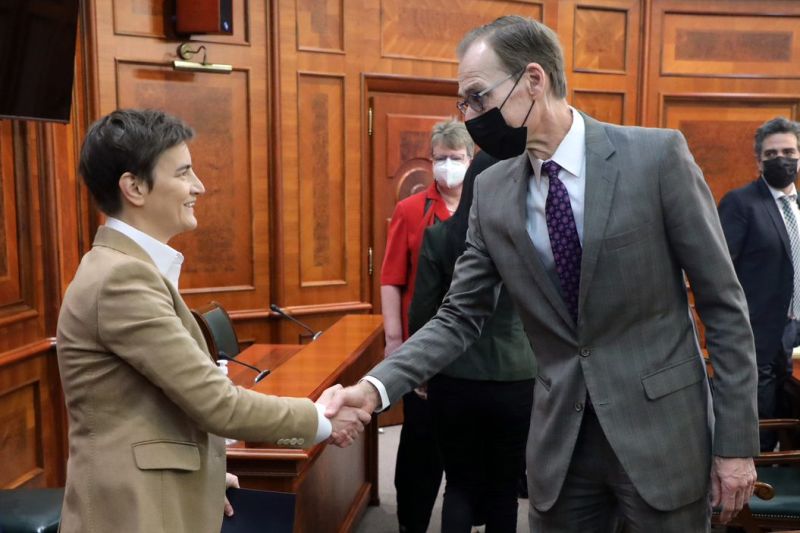Prime Minister Ana Brnabic talked today with the Mission of the International Monetary Fund (IMF), led by Head of the Mission Jan Kees Martijn, as part of the second revision of the current arrangement with Serbia, which began in June last year.
- Serbia
Get to know Serbia
- Citizens
Culture and science
Health services
Pension and disability insurance
- Business
Employment
Economy
- Media
- Government
- Contact
Keep in touch
Keepin touch
Whether you have a question, comment, suggestion or any problem in the purview of the government, send us your message and we will try to respond as soon as possible. If your problem is not in our purview, we will forward your message to the relevant institution.
Most of the goals under current arrangement with IMF fulfilled
Brnabic assessed as very important that most of the goals from the current arrangement have been fulfilled, and added that she hopes that the next government will continue to implement reforms and cooperate well with that international financial institution.
After both sides agreed that there are currently various global challenges that affect Serbia and that it is difficult to have projections for the next period, the Prime Minister pointed out that the government will try to minimise the impact of the global crisis and protect citizens and the economy.
She underlined that it is important to carry out the reform of public companies, especially those from the energy sector, such as Elektroprivreda Srbije (EPS), Srbijagas and Srbijasume, which was especially evident during the crisis.
The interlocutors agreed that investments are especially important for EPS now so that it could be well prepared for the next winter, but efficient management is important too.
When it comes to reforms, the Prime Minister highlighted the importance of the Tax Administration reform, within which the Ministry of Finance is implementing a new model of e-fiscalisation, which includes fiscal devices that have a direct connection with the Tax Administration in real time.
According to Brnabic, this will greatly help the Serbian government in the fight against the grey economy.
The Prime Minister also stated that the inflow of foreign direct investments continues, that talks with large investors are still ongoing and said that this is a good indicator of the condition of our economy despite global challenges.
In that context, Jan Kees Martijn said that he believes that the level of capital investments of the state, as well as foreign direct investments, will be maintained.
He added that it is good that Serbia has its own electricity production and developed agricultural production, and therefore there is not so much need to import these products, and added that he knows that the government has an active approach to the current global situation and is trying to help companies in every way.
The Head of the IMF Mission also added that he was impressed by the way in which AIK Bank took over Sberbank and that it was implemented very quickly and efficiently.
The introduction of a new system for calculating salaries in the public sector called "Iskra" was also discussed, which will completely bring order into the system of salaries for users of public funds, which is one of the reform goals.
The Prime Minister pointed out that the Unified Information System of Education has been launched, which brings together all information about institutions, employees and students in the education system of our country, and that is why it is important to connect this system with “Iskra”.
In June last year, Serbia signed a new advisory arrangement with the IMF - The Policy Coordination Instrument (PCI), which will last until the end of 2023. The arrangement is of an advisory nature and therefore does not include financial support.
-
_06_25_2025.webp) Belgrade, 25 June 2025
Belgrade, 25 June 2025Budget Fund for National Minorities in 2025 to amount to RSD 25 million
-
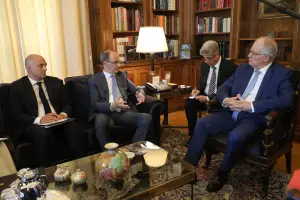 Belgrade/Athens, 23 June 2025
Belgrade/Athens, 23 June 2025Strategic partnership between Serbia, Greece in areas of common interest
-
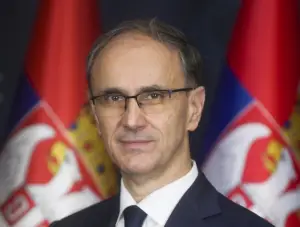 Belgrade, 23 June 2025
Belgrade, 23 June 2025Prime Minister on working visit to Athens
-
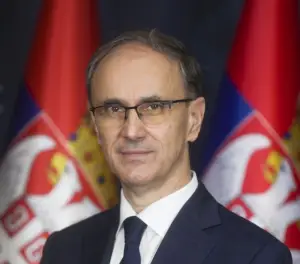 Belgrade, 20 June 2025
Belgrade, 20 June 2025Serbia, Egypt committed to strengthening trade, political ties
-
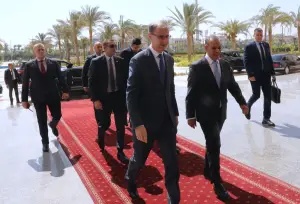 Belgrade/Cairo, 19 June 2025
Belgrade/Cairo, 19 June 2025Gratitude to Egypt for support in evacuating Serbian citizens from Israel
-
 Belgrade/Cairo, 19 June 2025
Belgrade/Cairo, 19 June 2025Potential to enhance cooperation with Egypt in multiple fields
-
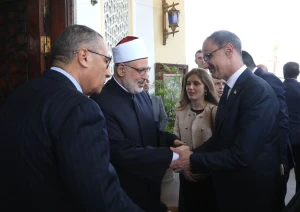 Belgrade/Cairo, 19 June 2025
Belgrade/Cairo, 19 June 2025Serbia committed to preserving peace, understanding among religious communities
-
 Belgrade/Cairo, 18 June 2025
Belgrade/Cairo, 18 June 2025Serbia firmly committed to nurturing historical, spiritual ties with Egypt
-
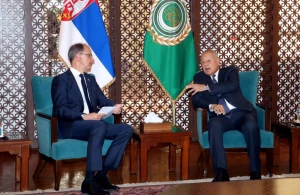 Belgrade/Cairo, 18 June 2025
Belgrade/Cairo, 18 June 2025Exceptionally substantial talks between Macut, Arab League Secretary-General
-
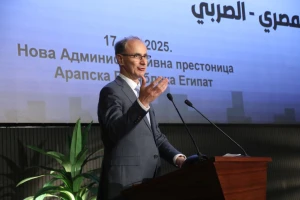 Belgrade/Cairo, 17 June 2025
Belgrade/Cairo, 17 June 2025Considerable space for multifold increase in trade exchange with Egypt


